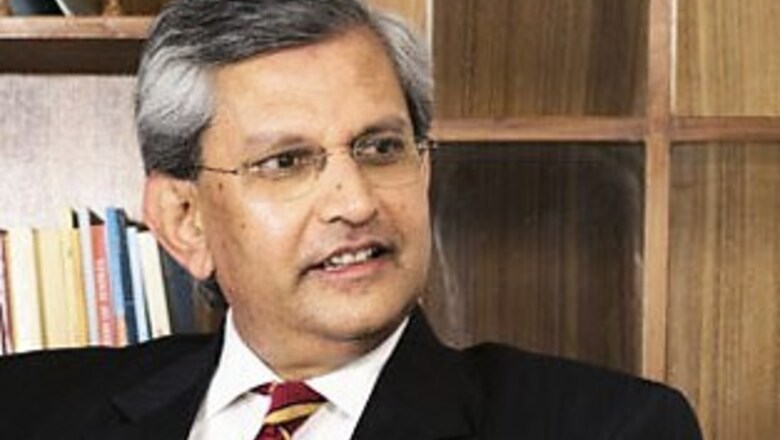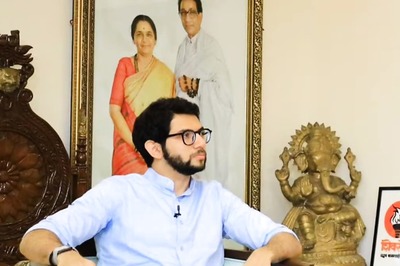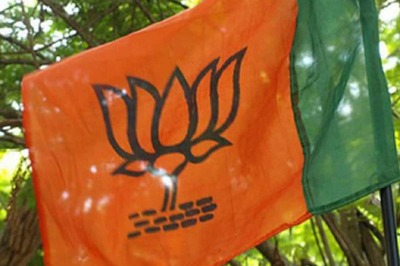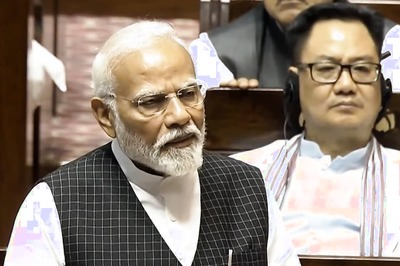
views
P RAJAPATI TRIVEDI
The Mission: Secretary, performance management. To set up a transparent and objective performance appraisal system for the various ministries.
The Difference He Makes: He comes with rich experience. His World Bank stint took him to places as diverse as Kenya, Riyadh and Gaza--he has worked with 26 governments across the world. That gives him the ability to tap into some of the best practices in different parts of the world.
Key Insight: “At the end of the entire exercise, we can name and shame, say the top 10 ministries and bottom 10 ministries, unleashing a competitive zeal inside the government. ”
After doing everything else, this was the ideal job. The job was so compelling. I got this opportunity to close the implementation gap in the government. With my World Bank experience and my global networks, I also had this ability to tap into some of the best practices in different parts of the world. It’s well established that the big difference between the developed country and developing ones is not so much about strategising and planning but implementation. I had been writing a lot to the Indian government, made proposals wanting to work here. I was helping other governments and I wanted to do it for India.
On January 2, 2009, I got a call from the cabinet secretary if I would like to join. A reluctant World Bank was advising me to wait for the elections to get over before taking the plunge. I told them I shouldn’t be thinking about election results if I was serious about what I wanted to do. I was coming here for the country, not for the government and that’s the reason why my post was made a bureaucratic assignment.
So who vets the performance against targets at the end of the year? Instead of government doing it, we have formed an independent, non-government task force of 15-20 people as knowledge partners. They are a set of IIM professors, ex-secretaries. The key to success was having a large competent and independent group of experts. They went through training.
What am I doing?
For the first time, the government department will have an elaborate procedure for setting priorities, defining performance and deliverables and then each of them will be judged according to how they perform by an independent committee comprising IIM professors and ex-bureaucrats. It has begun with the ministries but soon it will trickle down to cover bureaucrats as well.
The first stage of this system is to prepare a Results Framework document (RFD). The 12-page document provides a summary of the most important results that a department/ministry is expected to achieve during the financial year. This document has two main purposes: Move the focus of the department from process orientation to results orientation and provide an objective and fair basis to evaluate the department’s overall performance.
The document is prepared with internal consultations within specific ministries, aligned with government’s annual and five-yearly plans and is vetted and approved by a high power committee on government performance led by the cabinet secretary. Once it gets finalised [it] becomes a contract document against which each ministry and department’s performance will be judged at the end of the year.
The performance results [will be] put on the ministry Web site.
What’s the big deal? This is the first time priorities will be made clear with corresponding weightages. Everything has a timeline with rewards for timely submissions built into the system.
All of it will be done electronically so that the government has access to the progress report virtually on a daily basis. If it is not uploaded, we presume it’s not done. And at the end of the entire exercise, we can name and shame, say the top 10 ministries and bottom 10 ministries, unleashing a competitive zeal inside the government. Appraisal is a new system and will take a couple of years to stabilise. The biggest motivation will come from naming and shaming.
The Progress so far
The RFD for the three months, January-March 2010, has just been released. There will be new documents for the next financial year in April. We are doing all we can to help. We have already done 13 workshops for up to 500 bureaucrats to help them prepare RFD documents. Arun Maira will conduct a one-day work shop in early February to help senior bureaucrats learn how to set strategy. To let all of them know that the PM was dead serious about all this, the cabinet secretary had earlier called a meeting of all secretaries on the results framework documents and interacted with them in batches of 15.
Working here has been very exciting. I infused a bit of competitive zeal by ranking various ministries on the points they got in RFD submission and circulating it. Such was the competitive zeal that all 59 documents were submitted more or less on time. To my mind the debate between private and public efficiency is not so much about the ownership as much as about competition. You unleash the power of competition and see how it works.
I tried something similar with our software needs. We needed an e-office software that will allow government to keep all papers in electronic format. I reached out to TCS. But realising that it might create problems within, we went to NIC [National Information Centre] and told them “My heart is with you but we need this quickly. Will you be able to deliver on time else we will be forced to go to TCS.” They took on the competitive spirit and delivered within the deadline. Government has plenty of resources. Just that one should know how to tap it.
What Next?
In the past, the 4th, 5th, 6th Pay Commissions recommended adjusting salaries to market realities, but [they] also recommended performance-related incentives. But government was not able to implement.
Now on February 5, a committee of secretaries is meeting to discuss how to link up performance with pay. It is just a matter of working out the details. When done, up to 40 percent of the basic salary could be linked to performance. Then appraisal will not only have reputational implications but also financial.
Promotions, especially from joint secretary to the additional secretary level, will become more rigorous. We have been meeting some of the best companies and trying to understand how the private sector does it.
You will soon find a citizen’s charter for each government ministry. Basically it will outline what is it that a citizen walking into the department can expect. Clear targets and timelines will be spelt out so that the expectations are set. Each department will also have a world class complaint redressal system. They all should get ISO 15700, which is a certification for the government department. We are calling it Sarvottam.
How do I manage? You have to keep your ego aside. I literally went to all secretaries, met them, enquired what they did. It helped. People are waiting for someone to break the ice. They are willing to help, give me tips on what to do and how to do. My networks help a lot. At least four secretaries are my class fellows from St. Stephens days. Six were with me at the Boston University. Then some were my students.
I am excited.
(As told to Malini Goyal)



















Comments
0 comment